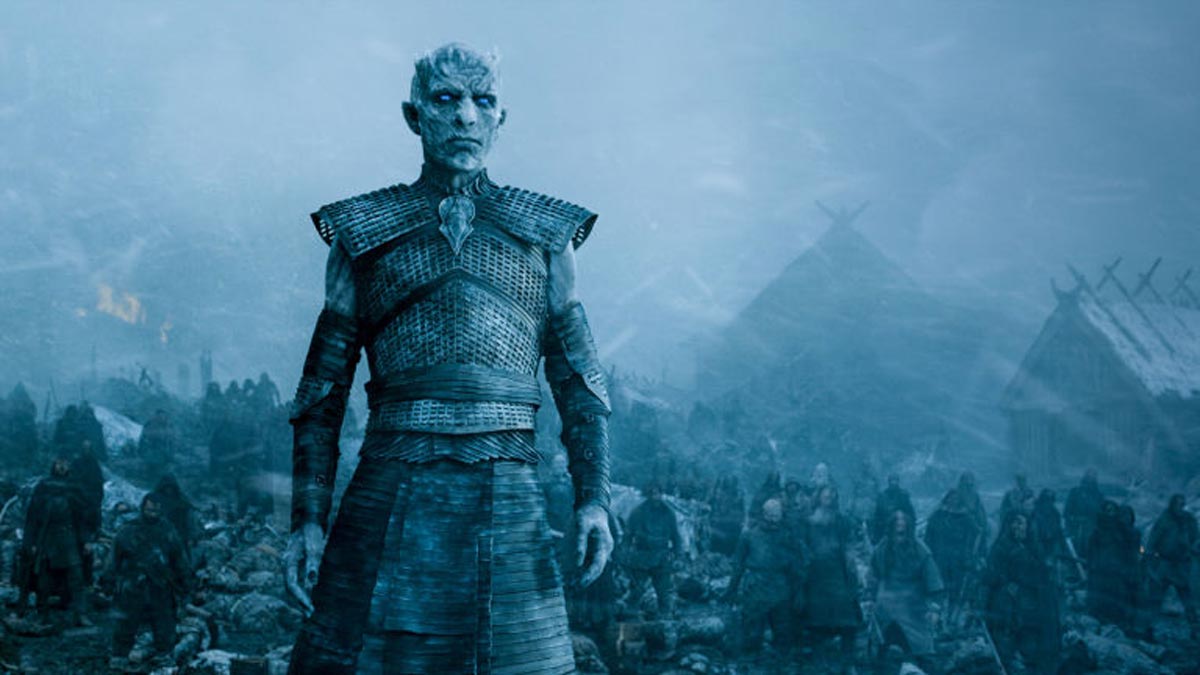
Billions of people all over the world have a love-hate relationship with the HBO fantasy series, Game of Thrones. Even before the backlash that arose from the final episode, there are many who just do not understand the commotion and excitement after every single episode. Is it the Season 2 climatic award-winning war episode, “Blackwater”? Season 5’s “Mother’s Mercy” with the iconic line ‘Shame’? Or the same season’s The “Dance of Dragons” that had over 27 million viewers watching at once? And even though many fans revolted after it seemed Daenerys would not be getting the happy ending most wanted, over 19 million viewers watched the final episode, making it the most watched HBO episode in its 46-year history.
After eight seasons, what is it about the show that was so compelling? For a lot of older and more conservative fans in Nigeria and other parts of the world, it had its obvious flaws – graphic sex; unnecessary nudity the sex, the gruesome deaths, the quick-paced intrigue. As an escape from reality, most viewers indulged themselves in these elements. But the series goes deeper than just fantasy escapism, and hits everyone on all kinds of other levels. It invited viewers to know, understand, and maybe root for the characters – and at times took them away and gave the viewers someone else to think about – another character for whom you had to invest emotions. There was always something in there for everyone, and what consumer could resist that?
There are several iconic episodes from Game of Thrones that would go down in television history, but there are noticeable points in history that became game-changers – leading to massive rise in HBO viewership, buy-ins by brands globally for marketing leverage, social media trends and record-breaking award seasons. Just like every other television series, it is still a piece of entertainment in which viewers could lose themselves for an hour every week, but the creators successfully built a super-complex world, with complicating characters and intricate storylines that everyone loved.
The show debuted in April 2011 with 2.2 million viewers (on HBO alone) and rose to about 2.7 million during the eighth episode. Although it dipped to 2.6 million in the ninth episode, the reaction and viral conversations that followed the shocking death of Ned Stark led to the most-viewed episode ever in the first season, with the 10th garnering more 3.04 million viewers. These were good numbers for any good television show, but they were obviously not record-breaking.
Below are some of the lessons from the Game of Thrones that any brand manager can replicate.
Create Your Own Community. It is vital.
Millions of viewers, including global brands – from Pizza Hut, Burger King, Pringles, to the New York Jets, Access Bank, Facebook, and many others decided to play, and by the 8th Season this year, it opened to 17.2 million viewers. This was an increase of 10.1 million viewers from the premiere of the previous Season, even though it leaked online hours before. Interestingly, many had waited for a year for the return of the final season, but they refused to watch the leaked episode and preferred to join millions of loyal viewers who all wanted to watch it at the same time.
This is the nature of the content consumer; the audience who crave interrupted brand communication that is built on common interests, excitement, and the trust created through consistency and unique storytelling. For eight years, the business and creative minds behind the series held the viewers in its grip, showing that while the consumer might be right always, the content itself remains king. They are not inherently opposed to brand communication, but they crave engagement marketing, a dynamic in which they want to connect and be acknowledged as unique individuals.
Create a feeling. It’s best when it’s a positive one.
Right from the topographic opening credits, to the love-hate relationships with the characters and the storyline, we were emotionally invested in what happens next. Letting them behind the curtain also helps you demonstrate both confidence and vulnerability, which makes audiences more eager to trust you and accept your expertise.
Too many brands are so focused on what they want to create, not what their audience needs. The current stage in brand marketing is about a battle of emotions, and the winner now takes all. For years, Game of Thrones constantly broke the rules of TV storytelling – Never kill your darlings. It started with Ned Stark, and the audience could not turn away.
Again, know your audience
Have the perfect ideas, create and understand audience personas, and let that be the beacon for everything the brand does. Shortly after its 2011 debut, a scathing New York Times review dismissed the series as “boy fiction” and suggested that no woman alive would watch it. Everyone who has witnessed the gory and sometimes oversexualised scenes might be inclined to agree. But by the second season till the finale this year, the massive viewer base was largely about 52 percent male and 48 percent female, meaning that HBO had captured both principal demographics.
In addition, according to Fizziology, which tracks social media buzz about TV shows, women were having a full 50 percent of the online conversations about Game of Thrones, which were mostly positive. While the story is set in medieval times when women were depicted as tools and pawns, there was a Cersei Lannister, Daenerys Targaryen, Arya Stark, Sansa Stark, Margaery Tyrell, Catelyn Stark, Melisandre, Brienne of Tarth, and so many others who were even more diverse than the male characters. So either has a male or a female fan, there was an arc for everyone.
Be Different
A lot of critics had scoffed at the notion that a swords-and-shields fantasy series, complete with dragons, giants and evil ice creatures who raise armies of the undead, would survive that long. By its fourth Season, Game of Thrones had surpassed much-beloved crime drama The Sopranos as the network’s most-watched show. In its seventh Season in 2017, its numbers had ballooned to an average of 31 million viewers (across all platforms) per episode.
The fastest way to approach a downturn is to adopt a brandspeak that sounds like every other one. While a lot of brand managers know this, they seemingly have to know way to dig themselves out. So while many brands might be speaking to the same people, the brand that intends to exist longer and prosper has to find its own language, and establish a different kind of voice. Failure to do that means getting lost in the noise.
Because, while there were other shows like it (Rome, Spartacus, Vikings, The Tudor, etc.), you had a Night King who could raise the dead, war with a queen who controlled dragons, and King of the North who had no heartbeat. How do you beat that?






